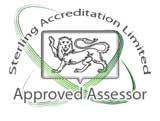
Services

Energy Performance Certificate
NEC are experienced in providing non-domestic EPC's on complex, larger sites, programming works in over a portfolio of sites as well as the smaller domestic style properties.
NEC are accredited to undertake assessments on Level 3 (smaller domestic style) and level 4 (larger, complex buildings with centralised HVAC).
NEC provides domestic EPC's within a localised area to the regional offices in Leeds, Bradford, Birmingham and London.
Display Energy Certificate
DEC's are beneficial to show the operational rating of a building and are required for public buildings over 1000m2, but can be commissioned on a voluntary basis as part of a carbon reduction and audit process.
Air Conditioning Reports (ACR)
Regular inspections of air conditioning systems are now required by law, with air conditioning inspections being conducted at intervals not exceeding 5 years.
Before 4th January 2011 all air conditioning systems over 12kW must legally have had their first air conditioning inspection. Inspectors will examine the air conditioning equipment, air movement systems and controls. They will need to inspect equipment located in plant rooms or on rooftops.
Once the visual inspection is finished, the inspector gives a detailed report to the person responsible for maintenance of the building's air conditioning system - 'the operational controller'.
ESOS
ESOS is the UK's response to Article 8 of the European Commission's Energy Efficiency Directive. The aim is to cut carbon emissions by requiring large businesses to identify energy reduction measures. Thousands of UK organisations will be affected by the scheme. NEC have a team dedicated to guiding you through the ESOS process to produce the fully compliant report.
Energy Management
Help reduce your energy costs through energy surveys, and audits with bespoke solutions via energy management systems specific for your requirements.
Asbestos
The Control of Asbestos Regulations (CAR 2006) came into force in November 2006; this includes regulation 4 "Duty to Manage" in non-domestic premises.
Regulation 4 "Duty to manage" requires the duty holder to find out whether the premises contain asbestos, assess the risk, and develop a plan to manage that risk and act on it.
Legionella
"The Control of Legionella Bacteria in Water Systems (L8)" 2001, applies to the control of Legionella bacteria in any system where water is stored or used and there are means of creating or dispersing water droplets which may be inhaled, creating a risk of exposure to Legionella bacteria.
Fire Risk
From the 1st October 2006, together with the Regulatory Reform (Fire Safety) Order 2005 (RRO) the "responsible person" for each non domestic premise will be required to carry out an assessment of the risks from fire and then implement steps to reduce or remove these risks.
Green Deal
Government intends that the Green Deal will revolutionise the energy efficiency of British properties. It is establishing a framework to enable private firms to offer consumers energy efficiency improvements to their homes, community spaces and businesses at no upfront cost, and recoup payments through a charge in instalments on the energy bill.
